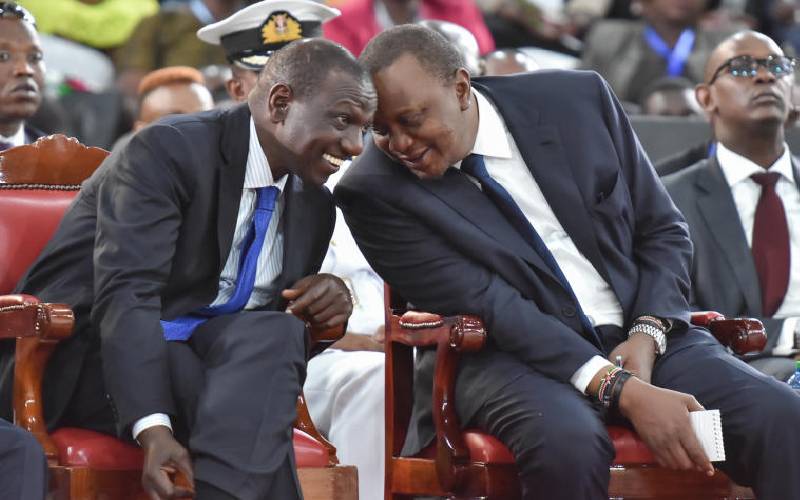×
The Standard e-Paper
Smart Minds Choose Us

Deputy President William Ruto and President Uhuru Kenyatta during the National Anti-Corruption Conference at Bomas of Kenya, Nairobi. [Photo, DPPS]
The Government’s cost-cutting measures are biting hard as 13 departments did not receive a penny in the first half of the current financial year for their development budget.







